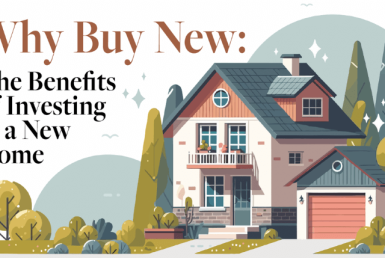7 Useful Tips Before Buying a Home
It’s well known that buying a home is most likely the largest single investment we will make in our lifetime. That said, it makes sense that we should have a well thought-out plan to make sure we make the best decision that’s right for us. Here are some important points to remember.
#1: GET PRE-APPROVED FOR A LOAN FIRST
You wouldn’t go shopping for a car without knowing if you could afford the car payments. So why would you go shopping for a home without an idea of how much home you can afford. Sure, it’s fun to dream, but if you’re serious about buying a home, it makes sense to make the most of your time spent shopping and avoid being disappointed by falling in love with a home you cannot afford. There are plenty of lenders who offer a free pre-qualification service. A word of caution: do not use the amount you qualify for as your purchase price guide. The purchase price is not the true cost of owning a home. Remember to add in all of the other hidden costs and expenses of home ownership.
• • •
#2: Do Your Homework
Take advantage of all the “Do and Don’t Do” advice available online for homebuyers—especially if you are a first-time buyer. One valuable source for homebuyers is a home loan toolkit available from the Consumer Financial Protection Bureau which offers a comprehensive list of things you should consider before you start shopping for your home loan.
• • •
#3: Choosing Either a New Home or an Existing Home
It’s important to know that buying a newly constructed home is different from buying an existing home. While each follows a similar lending process, you should consider the advantages and disadvantages of each. New homes will offer homebuyers the newest in construction materials and are generally more energy efficient than older homes. There are also more opportunities to customize a new construction home to your individual needs. The downside to new homes when compared to existing homes is that the cost will be a little higher because you are getting a newer product.
• • •
#4: Choosing a Builder
If you’ve decided that a newly constructed home or building a custom home is best for you, the most important advice is to find out as much as you can about the builder. Ask previous customers and research the company’s reputation. Check with your local Better Business Bureau to see if the company has any outstanding complaints. Here are a few tips: (1) you can tell a lot about a company by the way it treats its vendors. If the company has a great reputation with its vendors—the ones the company pays—you can probably guess that it will treat its customers equally as well. (2) If the company does not return your calls in a timely manner or not at all before you do business with them, you can expect more of the same after you start doing business with them. Lastly, (3) if the builder does not visit the job site on a regular basis during construction, chances are contractors are not being supervised properly. This could pose problems later.
• • •
#5: Code Compliance
Is the new home you are having built compliant with the State or Texas’ new IECC regulations? The State of Texas adopted the International Energy Conservation Code as of September 1, 2016. What this means is that every new home sold after that date must meet the new code’s strict requirements for energy efficiency. While the 2015 code is not being enforced by all municipalities, it is important to know that the responsibility for compliance is with the builder—not the city building code officials. But there are safety nets for you: initiatives like the BUILT TO SAVE™ program here in South Texas offer high-performance home certifications for new homes that comply with the 2015 IECC. See if the builder you choose is in the BUILT TO SAVE™ program.
• • •
#6: Don’t Just Buy a Home Built to Code—Buy One Built to Above Code
When you buy or build a new home that has or will be constructed to minimum code, you are getting a home built to the basic minimums required by law. Homes built to these minimum standards are generally less efficient and more costly to maintain. You also run the risk, for example, of not having an air unit that is properly sized to the home, which can present a whole host of problems for you down the road. If instead you make sure to buy or build your new home with a builder who utilizes a program like BUILT TO SAVE™, then your new home will be certified to above-code standards and inspected and tested by a licensed, independent energy rater who ensures that your home will be more energy efficient and offer more comfort, better indoor air quality, and less maintenance. Builders in the BUILT TO SAVE™ program invest more of their money to make sure their homes are built to standards superior to minimum code requirements.
• • •
#7: Have Your Home Inspected by a Professional
Hiring an independent, professional home inspector has saved many people from moving into a home with substandard workmanship or with serious issues not readily visible to the untrained eye. Find an experienced inspector who has your best interests at heart to evaluate the home you are looking at buying before you sign the contract. Once you sign, any existing issues will be your responsibility to fix. A home certified as BUILT TO SAVE™, for example, has the advantage of being inspected during construction before the walls are put in place, giving homeowners the peace of mind of knowing that what’s behind the walls complies with high-performance standards.
• • •
© RGV New Homes Guide, 2019. Unauthorized use and/or duplication of this material without express and written permission from this site’s author and/or owner is strictly prohibited. Excerpts and links may be used, provided that full and clear credit is given to RGV New Homes Guide with appropriate and specific direction to the original content.













Join The Discussion